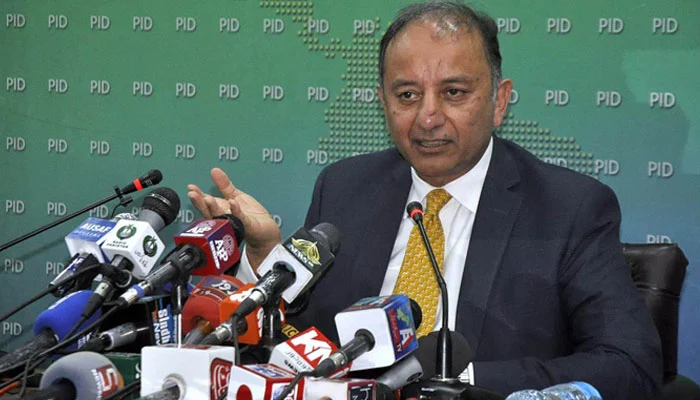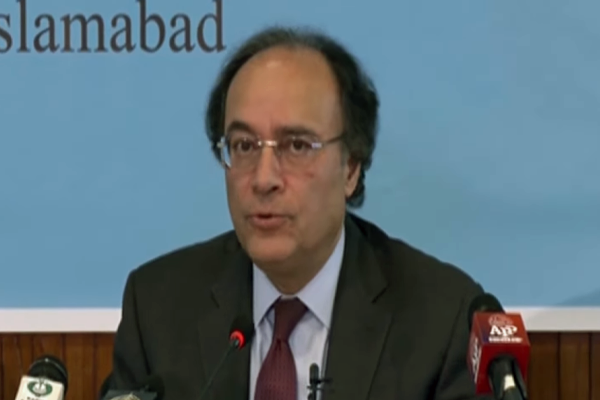Prime Minister Shehbaz Sharif on Monday emphasized the urgent need to modernize Pakistan’s tax system by launching digital tax returns in Urdu, simplifying the tax filing process, and introducing AI-based tax assessment to improve transparency and compliance. These reforms, he said, would prioritize the ease and convenience of ordinary taxpayers, especially salaried individuals and small businesses.
During a high-level weekly meeting to review the digitisation of the Federal Board of Revenue (FBR), the prime minister urged immediate measures to make the tax system more user-friendly. He directed the FBR to introduce a third-party validation mechanism to enhance transparency across all reform initiatives.
“The new simplified digital tax returns will mainly benefit salaried individuals,” the premier said, calling for a nationwide public awareness campaign to encourage tax compliance under the new framework.
The meeting was attended by several senior officials including Finance Minister Muhammad Aurangzeb, FBR Chairman Rashid Langrial, Ministers Ahsan Iqbal, Ataullah Tarar, Ali Pervaiz Malik, and Minister of State for Finance Bilal Kayani.
A key highlight of the session was the announcement that simplified digital tax returns will be available to salaried individuals from July 15, and extended to other taxpayers from July 30. For the first time, Urdu-language tax returns will also be made available by the end of the month, breaking a major language barrier for millions of citizens.
PM Shehbaz Sharif directed the FBR to ensure that a dedicated helpline and public surveys are introduced to gauge user satisfaction with the new system. He underscored that reforms should not only improve efficiency but also foster trust and ease for honest taxpayers.
Calling it a “significant milestone,” the prime minister praised the implementation of Pakistan’s first AI-based tax assessment system, a move that aligns with global tax administration trends. The system is designed to automate risk profiling and enhance audit accuracy, reducing human intervention and increasing efficiency.
The AI system also introduces the Advance Goods Declaration (AGD) feature, allowing traders to submit declarations prior to ship arrivals, helping them gain exemption from upfront duties and taxes. AGD compliance, which currently stands at just 3%, is projected to rise to over 95%, drastically speeding up container movement from ports to factories.
In another major development, the government plans to incorporate small and medium enterprises (SMEs) into the new digital invoicing ecosystem, a move expected to streamline transactions and reduce manual paperwork.
The digital invoicing system, integrated with Pakistan Revenue Automation Ltd (PRAL), enables businesses to issue invoices directly online at the point of sale. Already, 8,000 invoices worth Rs11.6 billion have been processed within the first month. Over 20,000 businesses are expected to join the system in the coming months.
Once fully operational, the system will eliminate the need for separate sales tax returns, as transactions will be automatically recorded, allowing for real-time compliance monitoring.
The system also includes a taxpayer portal, a monitoring dashboard, and an eight-digit Harmonized System (HS) code aligned with international standards, which will help detect fake invoices and further improve sales tax monitoring.
The meeting was briefed on the progress of the Central Command and Control Center, which will facilitate centralized data access and real-time decision-making. The bidding process for this unit is expected to be completed soon, and the system is targeted to become fully operational by September 2025.
This centralization will ensure more coordinated efforts in tax assessment, revenue collection, and fraud detection using big data analytics.
Another major component of the reforms is the e-bilty system and cargo tracking, aimed at ensuring real-time monitoring of goods movement and tax compliance.
Officials reported that the government is collaborating with Turkey to deploy these systems according to international standards. The initiative follows discussions between PM Shehbaz and the Turkish president during a recent visit to Azerbaijan. A Turkish technical delegation is currently in Pakistan to assist with implementation.
The meeting also touched upon measures to increase awareness and compliance. The Prime Minister reiterated the importance of creating a tax culture where citizens feel encouraged to contribute to national development, rather than burdened by bureaucracy.
By focusing on technology-driven reforms, offering services in the national language, and involving third-party surveys, the government aims to create an inclusive, transparent, and efficient tax system.
PM Shehbaz also acknowledged the efforts of Finance Minister Muhammad Aurangzeb, the broader economic team, and FBR Chairman Rashid Langrial, noting that their collective work is steering Pakistan toward a more equitable and tech-savvy tax regime.
These reforms represent a major leap forward in digitizing Pakistan’s tax infrastructure. With the introduction of AI, Urdu-language services, and automated invoicing, the FBR is set to become more accessible to both individual taxpayers and businesses, especially SMEs. The success of these reforms will depend not just on technology, but also on user awareness, transparency, and strong public engagement.




